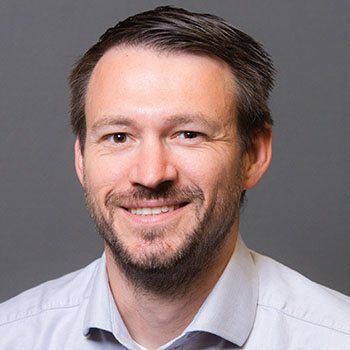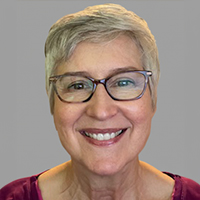In our fellowship program, you will learn the breadth of common and rare infectious diseases in a variety of inpatient and ambulatory settings from nationally recognized leaders in infectious diseases. We aim to develop clinically astute and curious experts capable of practicing in any desired practice type.
Fellowship Experience
Our program provides exceptional infectious diseases training in a collaborative environment across multiple hospital sites. At UAB, we have 1200 inpatient beds — the eighth largest public hopisal in the nation. Our fellows also rotate at the Birmingham VA Medical Center and can choose an elective rotation at the UAB Hospital Highlands campus.
Our fellows continuity and ambulatory training takes place at the 1917 HIV Clinic, UAB Highlands outpatient Infectious Diseases Clinic, Hepatology Clinic, Transplant Infectious Diseases Clinic, the Jefferson County Department of Health, Transgender Health Clinic and more.
Patients come from all over Alabama and neighboring states to take advantage of our life-changing care, offering a diverse population and breadth of clinical learning opportunites. We approach medicine in a multi-disciplinary modality across a broad variety of related conditions through mandatory and elective rotations.
Clinical Rotations
Our first year fellows rotate through General ID, Transplant and Immunocompromised ID, and Veteran Affairs Infectious Diseases Consult services as well as ambulatory and research rotations.
During the second year of fellowship, trainees will continue continutiy and ambulatory services four up-to four month. They will have an opportunity to participate in various electives including Pediatric, Orthopedic, and Hospitalists Infectious Diseases. Our program also offers electives in Medical Microbiology, Antimicrobial Stewardship, and Infection Prevention with additional protected time for research to meet the individuals fellows' career goals.
Our outpatient training takes place in our Continuity Clinic which is split between UAB’s 1917 HIV Clinic and the Highlands General ID Clinic to ensure trainees experience the full breadth of ambulatory infectious diseases.
Teaching Conferences and Resources
The division seeks to remain up-to-date on literature through a variety of educational conferences. Our mission is to ensure our fellows achieve their varied career goals through development, education opportunities, and by providing multiple layers of mentorship throughout your time in the program.
Regular conferences include board review, journal club, didactic lectures, Infectious Diseases Grand Rounds, clinical reasoning, and more.
Fellows will also participate in an annual competition designed to allow trainees to review board level content, integrate free online medical education resources, and build upon the global infectious diseases community via the ID Fellows Cup.
Research Opportunities
The Infectious Diseases Fellowship Program provides research expertise and mentorship across the spectrum of basic, translational, and clinical research. As the leading division in research revenue across the Department of Medicine, we are extensively equipped to support fellows in expanding knowledge in their specific area of interest.
Additionally, through the UAB Center for Clinical and Translational Science and the Center for Outcomes and Effectiveness Research and Education our fellows are granted access to research fellowships, additional training programs, drop-in clinics, panels, and seminars. We are passionate about preparing you for a future as a grant-funded physician scientist.
Let's get acquainted
It's not just what you learn. It's also about the people you learn with. Our Infectious Diseases Fellowship program leaders are dedicated to developing the potential of every talented trainee.
Meet our people
Frequently Asked Questions
-
What additional training opportunities does your program offer?
UAB Infectious Diseases Fellowship Tracks
The UAB Infectious Diseases Fellowship Program is proud to offer tracks that are tailored to prepare fellows specialized careers in their unique area of interest.
Transplant and Immunocomrpomised Infectious Diseases
UAB is the only solid organ and stem cell transplant provider in the state of Alabama. Patients come from everywhere in the state plus neighboring states, to seek care for these and related medical conditions. All fellows will have exposure to this area of focus during their general fellowship.
Opportunties for more advanced training can range from a clinical focus (inpatient and outpatient) during the second-year of fellowship to more expansive training with more research opportunities during the third-year of fellowship.
Antibiotic Stewardship
There are increasing opportunties for hands-on exposure to stewardship at both UAB and the Birmingham VA. Our Antibiotic Stewardship track can be a defined, month-long elective or a second-year focus. Activies for this track can include, but are not limited to, Medication use evaluations, protocol development, pre-prescription review, audit and feedback, diagnostic based stewardship feedback (rapid diagnostics on blood cultures), diagnostic stewardship, and handshake stewardship. Support for basic and advances Antibiotic Stewardship curricula are available via the Infectious Diseases Society of America.
Hosptial Epidemiology and Infection Prevention
Our Hospital Epidemiology and Infection Prevention can be defined as a month-long elective or a second-year focus. We also offer extended training with research opportunities for third-year fellows. Trainees engage with these specialized projects at UAB and the Birmingham VA. Activities can include, but are not limited to, observation of hospital-acquired infection surveillance and surveillance software, weekly multidisciplinary meetings and committe meetings, root cause analysis, surgical site infection prevention meetings, cluster and/or outbreak investigation, hand hygience, PPE, and disinfection observation.
Medical Education
This year-long certification program is offered to a multidsiciplinary group of second-year fellows within the Department of Medicine. The curriculum combines weekly didactics and project development.
Opportunties for Additional Third-Year Training
Internal Opportunities
- Transplant and Immunocompromised Infectious Diseases
- Hospital Epidemiology and Infectious Prevention
- External Opportunities
External Opportunities
- Critical Care Medicine
- Medical Microbiology Fellowship (begins July 2025)
-
What will I need to apply?
All applications are reviewed via Electronic Residency Application Service® (ERAS), which requires the following documents:
-
Current CV (updated within 3 months)
-
Medical School Transcripts (and diploma if requested)
-
Medical School Dean’s Letter
-
Three (3) total Letters of Recommendation (including former program directors)
-
Certificate/verification from previous residency training
-
Must be eligible for Alabama Medical License and Alabama Controlled Substance Certificate (all step scores completed at the time of application)
-
Must be eligible for Federal DEA registration
-
Valid ECFMG Certificate (IMG only)
We do not accept any addtional documents outside of ERAS submissions.
-
-
Is there a minimum USMLE score required?
There is no minimum USMLE score requirement. We take the score into account as part of the overall review of an application.
-
What are the key program dates for Applications?
Applications Open and Close — June through May: Apply through ERAS
Applications Reviewed — July, must be available by August 1
Interview Invitations Released — last week in August
Interviews Begin — September and continue through October
Match Day — November
Fellowship begins — July 1
-
Do you sponsor H1B or J1 Visas?
Yes, the division can sponsor these Visas.
-
What are the salaries & benefits for fellows?
Our program provides benefits and insurance plans available to all fellows at UAB. You can find the list of salaries and benefits for fellows based on PGY level here.
Got more questions? Reach out and let's talk.
 I'd be delighted to talk with you about the many exciting possibilities that await you at UAB and Birmingham. Contact me for more information about the infectious diseases fellowship.
I'd be delighted to talk with you about the many exciting possibilities that await you at UAB and Birmingham. Contact me for more information about the infectious diseases fellowship.
Todd McCarty, MD, Program Director
Send an Email
 I'm always ready to answer questions about our program. Please feel free to contact me for more details about the fellowship.
I'm always ready to answer questions about our program. Please feel free to contact me for more details about the fellowship.
Vicki Noles, Education Administrator
Send an Email